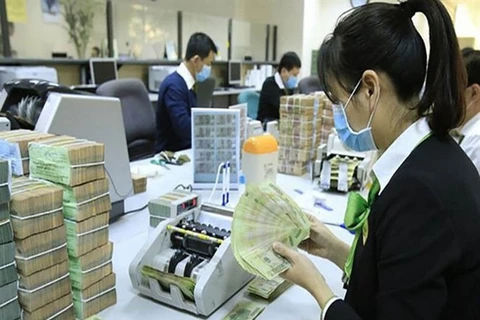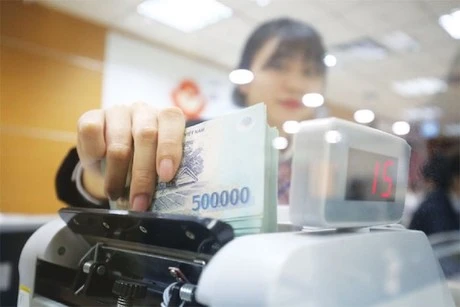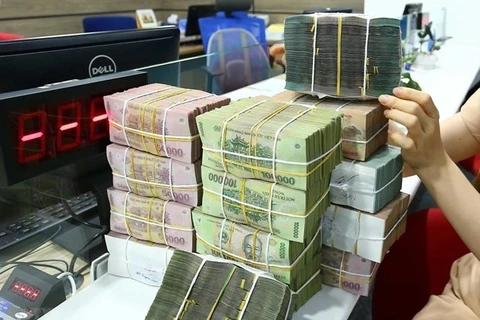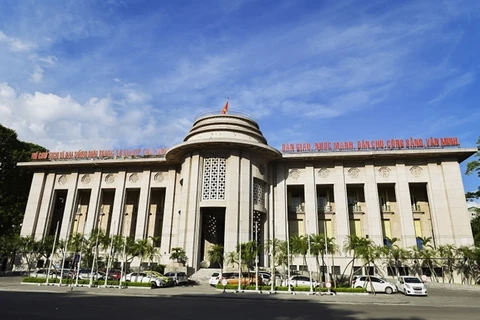Hanoi (VNS/VNA) - Commercial banks are trying to boost individual consumer loans, especially to home and car buyers, since credit growth had slowed due to low capital demand from businesses.
SHB has recently launched attractive loan packages for home and car buyers, with interest rates of 6.5 percent and 6.8 percent per year, respectively, down from 7.5 percent.
In a similar move, BIDV said it had set aside 30 trillion VND (1.29 billion USD) to lend to individual clients with interest rates of 5.5 percent per year for loans with terms less than six months, and 6 percent for 6-12 month loans. These rates are down 0.5 percent against last month.
At Maritime Bank, clients can borrow money to buy cars at 6.99 percent per year while the rate at NCB is 7.99 percent.
Other banks offering car purchasing loans at interest rates below 10 percent include Techcombank at 8.19 percent, Vietcombank at 8.4 percent and Military Bank at 8.5 percent.
Foreign banks have also joined the push, offering car loans at interest rates below 10 percent.
Woori Bank is lending to fund car purchases at a rate of 7 percent per year for the first 12 months.
HongLeong Bank quotes a rate of 7.55 percent per year for the first 12 months and 8.55 percent for 24 months, Standard Chartered 7.25 percent and 8.49 percent, and Shinhan Bank 7.69 percent and 8.6 percent, respectively.
Interest rates for home loans offered by foreign banks are also attractive. Standard Chartered provides loans at a preferential interest rate of 6.49 percent, HongLeong Bank 6.75 percent, Shinhan Bank 6.9 percent and Woori Bank 7 percent.
According to industry insiders, interest rates for car and home loans were nearly equal to 6-12 month term deposit interest rates.
Home and car loans account for the largest proportion of banks’ consumer loans. Home loans are estimated to account for 50 percent, and car loans 10 percent.
According to experts, banks had to cut interest rates for consumer loans to boost lending as deposits had continued to rise while lending to firms had slowed.
According to the State Bank of Vietnam (SBV), as of mid-August, deposits had increased by 6.3 percent, while loans had risen by only 4.13 percent.
Money had continued to flow into banks, despite deposit interest rates falling. Meanwhile, individuals and firms with large amounts of cash were leaving their money in banks.
Banking expert Nguyen Tri Hieu told Vietnam News that banks were focusing more on consumer lending as these loans had interest rates far higher than other kinds of loans because of the higher risks.
Finance reports from some profitable banks showed that their profits were due to the increase in consumer loans.
Hieu said at the moment, with the economy struggling to recover from the COVID-19 pandemic, consumer loans would help stimulate general demand, thus supporting economic growth.
A recent report from BIDV Securities Company (BSC) forecast that credit growth in the entire banking system this year would be only 9 percent, compared with the 13 percent set in 2019.
Analysts from Saigon Securities Incorporation (SSI) estimated an even lower rate. SSI’s recent report on the outlook for the banking industry in the second half of 2020 forecast credit growth in 2020 would be around 7.5-8.5 percent.
According to the analysts, the credit demand may continue to weaken as the country still suffered impacts of the pandemic while banks, especially large-sized ones, may not lower their credit granting standards.
Due to the low credit growth, besides consumer loans, banks were increasing their purchases of Government bonds, despite the lower interest rates.
The Hanoi Stock Exchange (HNX) reported that it had mobilised 22.8 trillion VND through Government bond issuances in August. The figure had reached 1,230 trillion VND as of August 31.
Banks were also buying more corporate bonds. Bankers were the biggest buyers of bonds, especially real estate bonds. In the first half of this year alone, banks bought VNĐ28 trillion worth of bonds issued by real estate firms, which accounted for 40 percent of the total bonds issued./.
VNA

























